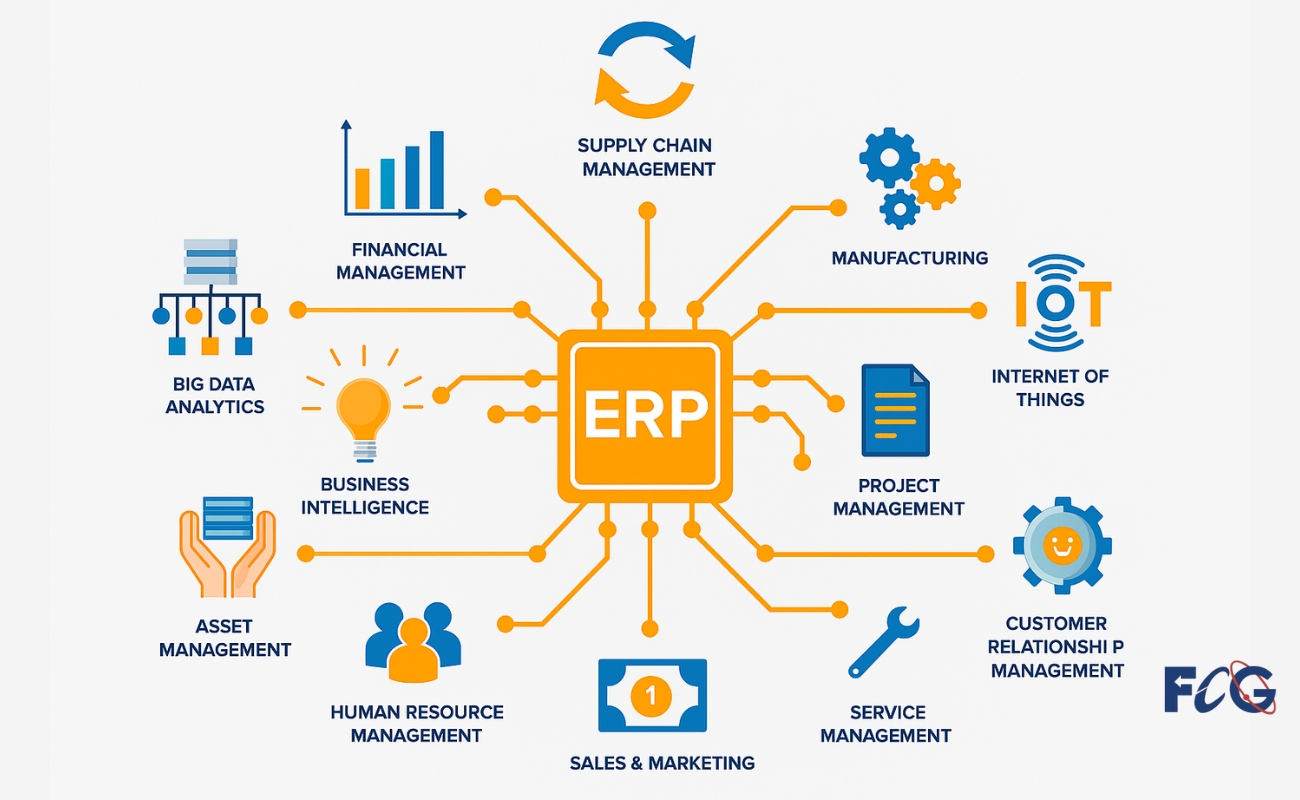Why Hiring Full Stack App Developers Is Key to Building Powerful and Scalable Applications
In today’s digital landscape, the demand for robust and versatile applications is growing rapidly. As companies of all sizes seek to create seamless, feature-rich digital experiences, the role of the full stack app developer has become more crucial than ever. By choosing to hire full stack app developers, businesses gain access to multi-skilled professionals with the expertise to manage both the front-end and back-end components of an application. This enables them to develop high-performance, scalable applications efficiently and effectively. But what exactly makes hiring a full stack app developer so advantageous? Let’s explore the key reasons why investing in full stack talent can be the best decision for building powerful and scalable applications.
1. End-to-End Development Expertise
Full stack developers are trained to handle both client-side (front-end) and server-side (back-end) development, which makes them exceptionally versatile. They are equipped with a broad skill set, including proficiency in various programming languages, frameworks, and technologies that allow them to work on every aspect of the application. From designing the user interface (UI) and ensuring an intuitive user experience (UX) to building the underlying infrastructure and managing databases, full stack developers bring an end-to-end development approach.
This comprehensive expertise simplifies the development process as full stack developers can understand and manage the entire stack, making it easier to integrate features, troubleshoot issues, and optimize application performance. By hiring full stack app developers, companies reduce the need to coordinate between multiple specialists and avoid potential communication gaps, ultimately leading to a faster, smoother development cycle.
2. Cost Efficiency and Resource Optimization
For startups and small to medium-sized enterprises (SMEs) with limited budgets, hiring full stack developers can be a cost-effective choice. Instead of employing multiple specialists for front-end, back-end, and database management, a full stack developer can handle all these roles. This streamlined approach cuts down on hiring costs and reduces the overall project budget.
Moreover, full stack developers allow businesses to scale their development teams more flexibly. When project requirements fluctuate, full stack developers can adapt to take on different roles and responsibilities, maximizing resource efficiency. For example, during the initial stages of development, they may focus on building core back-end infrastructure. As the project progresses, they can pivot to front-end development and fine-tune the application’s UI/UX to ensure a polished end product. This versatility helps businesses allocate resources more efficiently, achieving a higher return on investment.
3. Improved Project Management and Communication
One of the challenges of software development is ensuring smooth collaboration between front-end and back-end teams. Miscommunication between these groups can lead to delays, design discrepancies, and technical issues that could impact the functionality and user experience of the application. Full stack developers bridge this gap by working on both sides of the development process, effectively eliminating the need for constant back-and-forth between different specialists.
Having a full stack developer manage the project or work closely with the team ensures a unified vision for the application’s functionality and design. Their in-depth knowledge across the stack means they can make informed decisions about how different components of the application interact, which reduces potential conflicts and accelerates the development timeline.
4. Enhanced Flexibility and Faster Development Time
In today’s competitive market, speed to market can be a significant differentiator. Full stack developers offer increased flexibility, allowing businesses to adapt quickly to changes in project scope or new market demands. Unlike specialized developers who might require time to familiarize themselves with different parts of the application, full stack developers have the knowledge and experience to switch between tasks seamlessly.
This flexibility contributes to faster development times, especially in agile environments where rapid iterations and continuous improvements are crucial. Whether it’s fixing bugs, adding new features, or modifying existing ones, full stack developers can handle various development aspects efficiently, reducing bottlenecks and ensuring that the application meets tight deadlines. For businesses aiming to stay competitive, this accelerated time-to-market is a powerful advantage.
5. Holistic Problem-Solving Abilities
The ability to diagnose and resolve issues quickly is essential in application development, especially for large-scale, high-performance apps. Full stack developers are uniquely positioned to troubleshoot issues that span multiple layers of an application because they possess a comprehensive understanding of both front-end and back-end development. When issues arise, they can identify the root cause more accurately and implement solutions that consider the entire application’s architecture.
For instance, if there’s a performance bottleneck, a full stack developer can analyze both server-side processes and front-end rendering to identify and resolve the issue. This holistic approach to problem-solving not only improves the application’s stability and performance but also reduces downtime and user disruptions. By having a full stack developer onboard, companies gain an asset capable of ensuring a seamless user experience through proactive and comprehensive troubleshooting.
6. Scalability and Long-Term Maintenance
Building scalable applications that can accommodate growth in user traffic and data volume is a key priority for businesses. Full stack developers are well-suited to design applications with scalability in mind because they understand how all the components interact and how to optimize them for future expansion. They can architect flexible back-end infrastructures, efficient front-end designs, and scalable database solutions that facilitate growth without compromising performance.
Additionally, full stack developers can play a crucial role in long-term maintenance, making them valuable assets even after the application is launched. They can implement updates, add new features, and optimize existing functionality to ensure the application remains competitive. Their deep knowledge of the entire application stack allows them to make changes without causing disruptions, ensuring a smooth user experience over the long term.
7. Adaptability with Evolving Technologies
The field of technology is constantly evolving, with new frameworks, languages, and tools emerging regularly. Full stack developers are usually proficient in multiple programming languages and are quick to adopt new technologies, making them adaptable to change. This adaptability is crucial in an industry where staying up-to-date with the latest advancements can make a substantial difference in application performance and user satisfaction.
Full stack developers’ ability to learn and integrate new technologies into their workflows allows companies to implement cutting-edge features and stay competitive. Whether it’s integrating AI for data analytics, implementing blockchain for security, or optimizing for mobile responsiveness, full stack developers can navigate these challenges, ensuring that the application remains relevant and innovative.
8. Better Understanding of User Needs and Business Goals
Since full stack developers work across both front-end and back-end, they have a unique perspective on user experience and functionality requirements. This broad view allows them to align their development work closely with the business’s goals, creating applications that not only meet technical specifications but also serve the end-user effectively.
With their hands-on involvement in every layer, full stack developers can optimize the application to fulfill business objectives, whether it’s improving user engagement, increasing conversion rates, or enhancing scalability. Their alignment with the business’s vision makes them valuable contributors to the project’s success.
Conclusion
Hiring full stack app developers is a smart investment for companies looking to build powerful and scalable applications. These multi-talented professionals bring end-to-end development expertise, cost efficiency, and holistic problem-solving abilities that can transform a project’s success. By bridging the gap between front-end and back-end development, full stack developers streamline project management, reduce development time, and provide a unified approach to creating applications that are both user-friendly and technically robust.
In a fast-paced market where technology is always evolving, full stack developers’ adaptability, flexibility, and comprehensive skill set make them invaluable assets. They not only help companies bring innovative products to market faster but also ensure that these applications are scalable, maintainable, and aligned with the business’s long-term goals. For businesses aiming to stay competitive and responsive to user needs, investing in full stack app developers is key to building powerful, scalable applications that stand the test of time. Appcodex is a leading tech company that specializes in delivering innovative software solutions and blockchain development services to help businesses enhance their digital transformation.














Post Comment